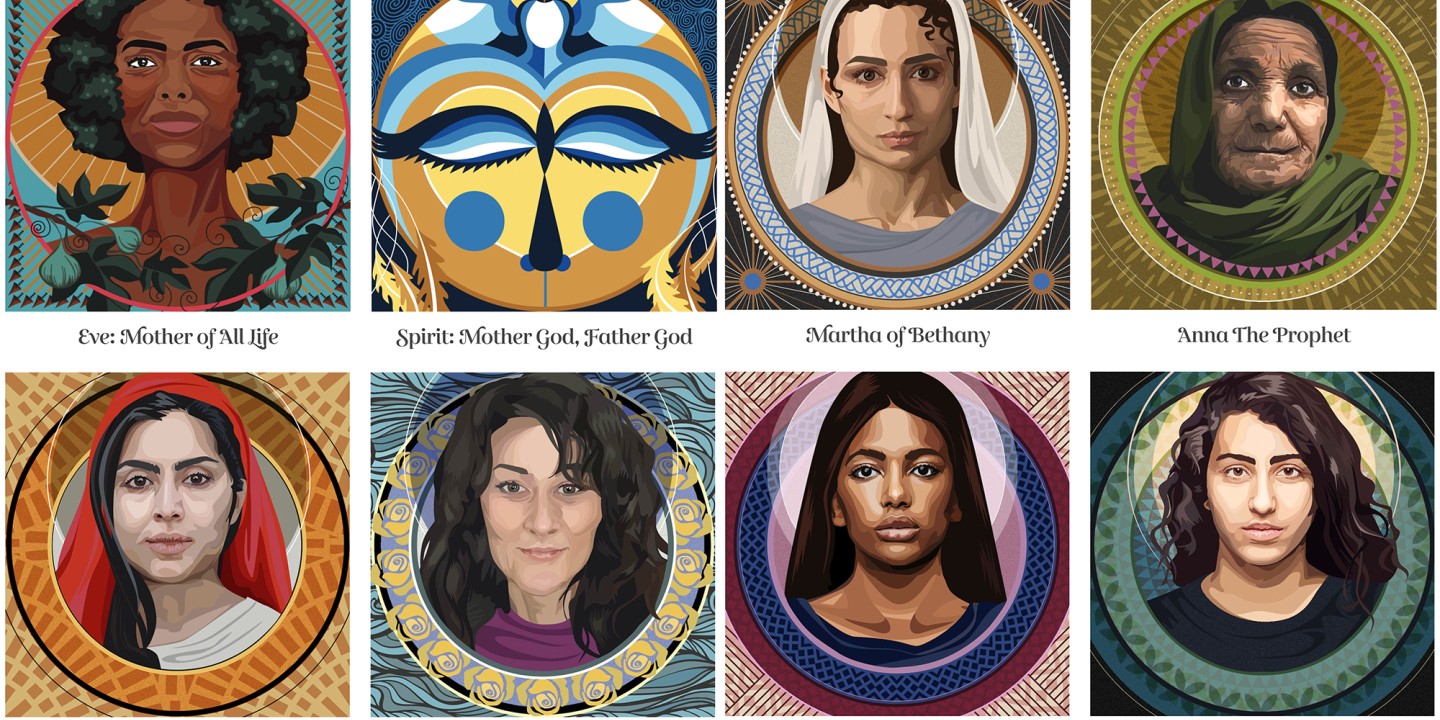Know Your Mothers project returns

After Cara Quinn became a Christian in her early 20s, she began wondering where all the women were.
It’s not that they were missing from the pews. Women generally outnumber men when it comes to church attendance. But they were never in the pulpit. And Quinn wasn’t sure where to find them in the Bible, either. They didn’t really come up in any of the other male-centric resources she read as she dove into her new faith.
Quinn assumed women weren’t there to be found—until she took courses on feminist theology and women in the history of the church while attending seminary part-time.
Her curiosity about the women of the Bible and early Christian history led Quinn to launch a series of what she calls “modern icons,” then an app, and then—just this Easter—a church.
After graduating from Fuller Theological Seminary in 2019, Quinn combined her master’s degree in theology with her background in advertising, design, and illustration to create icons of those female figures.
Quinn initially posted the icons on Instagram and unpacked their subjects’ stories on her blog, calling the project Know Your Mothers.
Toward the end of 2020, she launched the Know Your Mothers app to coincide with Advent. For six months, she updated the app each day, digging into the story of a different female figure each week. She shared art, reflections, discussion questions, plenty of footnotes, and daily scripture readings from the Revised Common Lectionary.
Read our latest issue or browse back issues.
“I needed people to hear the stories that I was hearing that were helpful for me, that were transformative for my understanding of the potential I could be or the potential women could be,” she said.
Quinn’s process begins with research, prayer, and spiritual reading practices like lectio divina to help her explore each woman’s story. She asks herself, “What is the good news in the story for the oppressed person?”
She then works digitally to combine a number of images to come up with a portrait that looks like “women that we could relate to today, that we can go to for questions,” she said. She tries to conceptualize them as a mentor or somebody a modern woman might ask out for coffee to talk about what’s going on in their lives.
She has primarily focused on female figures in the Bible and extracanonical gospels but has also regularly featured women from early Christian history, such as Perpetua and Felicitas, Egeria the Pilgrim, and Constantine’s mother, Helena.
One of the most surprising biblical stories for Quinn to explore, she said, was that of Jezebel, an Israelite queen whose name has become synonymous with evil and sexual promiscuity and has been used to silence women within the church. The things Jezebel did were no more evil than what plenty of male kings did in the Bible, according to Quinn. But the men aren’t described in the same way. And nowhere in scripture is sex part of her story.
“She was violent and aggressive and acted in many evil ways. She was also faithful, loyal and committed to what she loved and held dear. As a foreigner she may have known no other way,” Quinn writes on her website.
Now, Quinn is returning to Know Your Mothers after a pause to parent four small children through the COVID-19 lockdowns. She is also helping to relaunch a church that shut down during the worst of the pandemic.
She has a series on the Desert Mothers ready to go, and she wants to make her icons available for purchase through the website. She’s also considering expanding Know Your Mothers to include other expressions of gender, noting that many of the Desert Mothers “would deny their own gender or they would become male.”
She plans to merge that work with the work she is doing to launch a new nondenominational church in Los Angeles called All Saints Church, which will incorporate the model of learning about a single figure each week and reflecting on it together as a community, she said.
Quinn hopes elevating the stories of women in the Bible and early Christian history will make women feel seen and feel closer to God. She hopes it will make them feel free.
“For me, just holding all of scripture loosely, allowing God to speak, and experts—people not myself—to speak into it with the research they’ve done and then weighing that has actually made the Bible so much bigger for me,” Quinn said.
“It’s made it so much richer. It’s made it so much more interesting and a place of discovery, over a place of rules and regulations or a way to believe.” —Religion News Service





